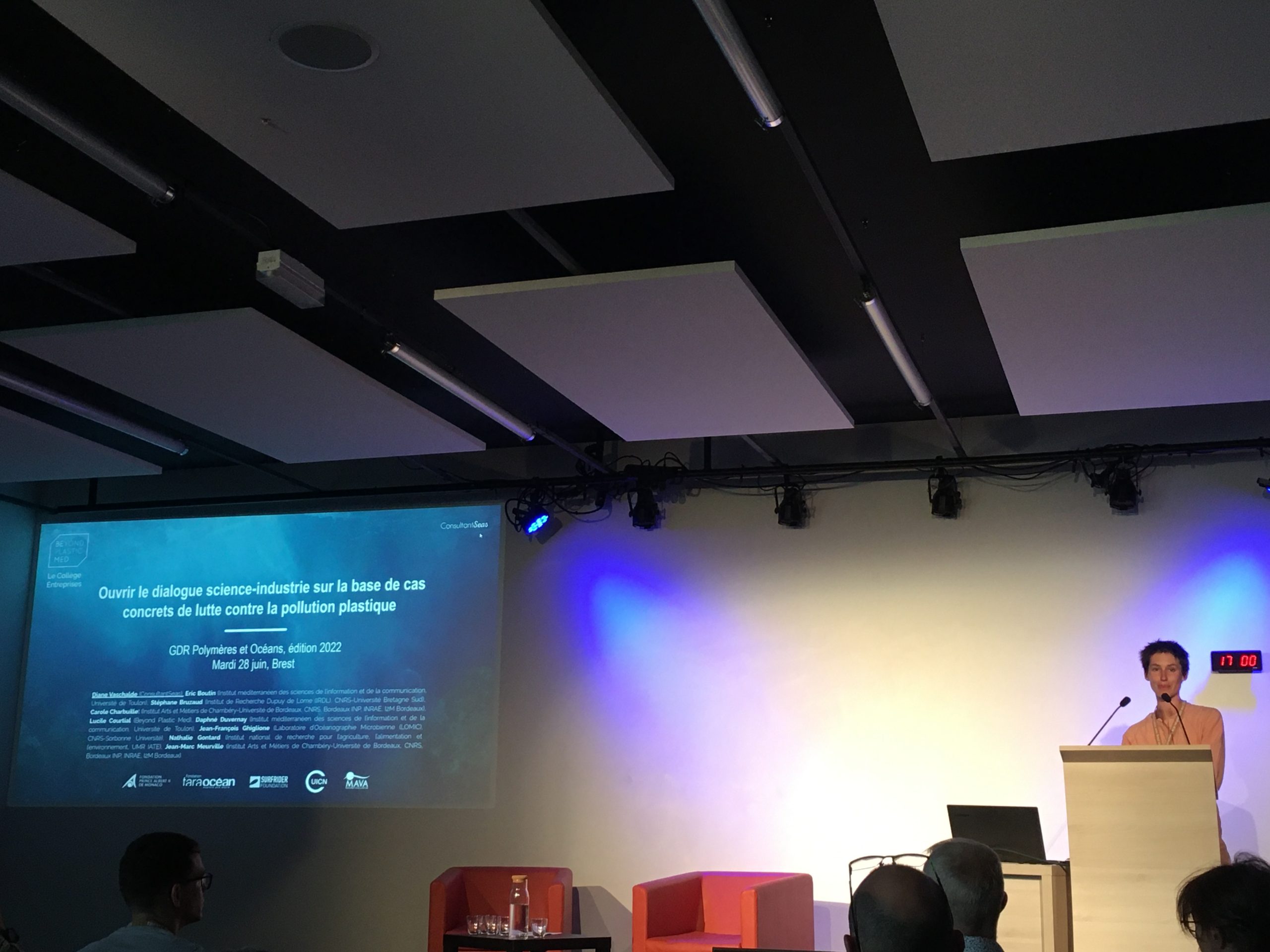Participation in the research group Polymer and Ocean
- News
- Participation in the research group Polymer and Ocean

The Polymers and Oceans research group (RG PO) brings together the French-speaking scientific community studying the fate and impacts of polymers in the aquatic environment. It mobilises more than 56 research teams and 240 chemists, physicists, biologists, ecologists, ecotoxicologists, oceanographers, economists and sociologists in order to encourage transdisciplinary and multi-scale approaches. The third national meeting of the GDR PO was held from 27 to 29 June in Brest, preceding the event Plastics, change of course!
The works of BeMed Business Club were promoted through an oral communication entitled “Opening the science-industry dialogue on the basis of concrete cases of fight against plastic pollution”. The aim of this presentation was to demonstrate the interest and necessity of multidisciplinary scientific approaches to accompany private sector actions to reduce plastic pollution. Two examples were shared and discussed : the ecodesign case study and the pilot project at the InterContinental Marseille – Hotel Dieu.
These two projects supported by BeMed Business Club both call upon polymer sciences, human sciences and social sciences to guide questioning and decision-making. In the case of the “small flexible multi-material bag”, expertise in industrial creativity, eco-design, bio-based polymers, degradability and behavioural psychology have been mobilised. This allowed for the identification of action levers for each phase of the packaging’s life, for thinking about usage going as far as questioning the raison d’être and over-quality, and for a debate on the biodegradability and recyclability of the materials studied. For the project “Towards a zero plastic single-use hotel” deployed within the InterContinental Marseille – Hotel Dieu, simplified life cycle analyses were very useful to avoid the false good ideas of certain alternatives (shower cap or toothbrush), and to confirm the environmental interest of other solutions, such as water fountains and reusable cotton pads. Information and communication science approaches were used to design a coherent communication ecosystem, to formulate clear and unambiguous messages to customers and to develop a way of assessing the acceptability of alternative solutions for customers and staff.
The diversity of the disciplines mobilised to support the College’s activities makes it possible to cross the methodological views on a complex object of study, and to be able to raise the right questions at the right time. However, companies must be involved as early as possible in order to be able to grasp, understand and integrate the scientific approach. The presentation sparked many questions and reactions, which testifies to the audience’s interest in the approaches taken by the BeMed Business College, its scientific council and its partners (ConsultantSeas; Institut Arts et Métiers de Chambéry-Université de Bordeaux, CNRS, Bordeaux INP, INRAE, I2M Bordeaux; Institut national de recherche pour l’agriculture, l’alimentation et l’environnement, UMR IATE; Institut méditerranéen des sciences de l’information et de la communication, Université de Toulon; Institut de Recherche Dupuy de Lome (IRDL), CNRS-Université Bretagne Sud; Laboratoire d’Océanographie Microbienne (LOMIC), CNRS-Sorbonne Université).


